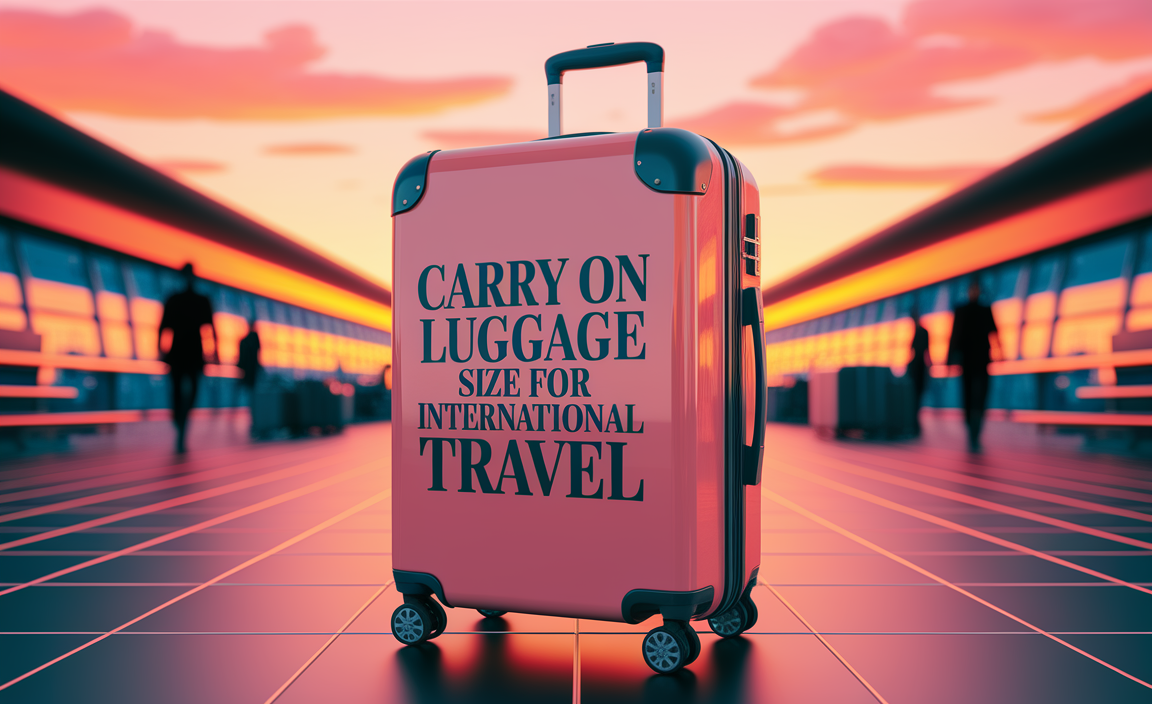Your best Bali island travel guide is here! Discover essential tips for planning a comfortable, stress-free trip. From packing essentials like travel-friendly adult and child diapers to navigating local customs and attractions, this guide makes your Bali adventure easy and enjoyable.
Dreaming of Bali? The Island of the Gods calls with its vibrant culture, stunning beaches, and lush landscapes. But planning a trip to a new destination can feel a bit overwhelming, especially when you want to ensure comfort and ease for everyone, from the youngest traveler to adults who might need extra support. You might wonder about the best way to pack, what to expect, and how to truly soak in the magic without any worries. Don’t fret! This guide is designed to break down the essentials, making your Bali journey a breeze. We’ll cover everything from practical packing choices to making the most of your island experience.
Why Bali is a Must-Visit Destination
Bali offers a unique blend of experiences that appeal to every type of traveler. Whether you’re seeking adventure, relaxation, spiritual growth, or simply a beautiful place to unwind, Bali delivers. Its rich Hindu culture is evident in its countless temples, traditional dances, and ceremonies. The island is also a haven for surfers, yogis, foodies, and nature lovers, with volcanic mountains, rice paddies, coral reefs, and a warm, welcoming population.
Planning Your Bali Adventure: Essential Tips
Getting ready for Bali is part of the fun! A little preparation goes a long way to ensure a smooth and enjoyable trip. We’ll cover making practical choices that enhance your comfort and peace of mind.
Best Time to Visit Bali
Bali has a tropical climate with two main seasons: dry and wet. The best time to visit is generally during the dry season, which runs from April to September.
During these months, you can expect:
- Sunny days with lower humidity.
- Ideal conditions for beach activities, exploring temples, and trekking.
- Slightly cooler evenings.
The wet season, from October to March, brings higher humidity and more frequent rainfall, often in short, intense bursts, usually in the afternoon or evening. While it can be more humid and rainy, it’s also less crowded and offers lower prices for accommodation and flights. If you’re traveling with young children or require specific personal care items, packing strategically for either season is key.
Visa and Entry Requirements
Visa regulations can change, so it’s always best to check the official Indonesian immigration website or your country’s embassy for the most up-to-date information relevant to your nationality.
As of recent guidelines, many nationalities can enter Bali visa-free for short stays (typically 30 days) or obtain a Visa on Arrival (VOA). Ensure your passport is valid for at least six months beyond your intended stay.
For longer stays, you may need to apply for a different type of visa before your arrival.
Getting to Bali
Ngurah Rai International Airport (DPS) in Denpasar is Bali’s main gateway. Numerous airlines offer direct flights from major cities around the world, or connections through hubs like Singapore, Kuala Lumpur, Doha, or Dubai.
Booking flights in advance, especially during peak season, can help secure better prices.
Getting Around Bali
Navigating the island is part of the adventure! Here are the most common ways to get around:
- Taxis and Ride-Sharing Apps: Apps like Gojek and Grab are popular and generally more affordable than standard taxis. Metered taxis from reputable companies like Blue Bird are also a reliable option.
- Scooter Rental: A very popular choice for independent travelers, offering flexibility. However, traffic can be chaotic, and an International Driving Permit is required. Always wear a helmet and ensure you have travel insurance that covers scooter accidents.
- Private Drivers: For day trips or longer transfers, hiring a private driver is comfortable and convenient. This is an excellent option if you’re traveling with family or a group, or if you prefer not to navigate the roads yourself. Many drivers offer full-day tours.
- Walking: In popular tourist areas like Seminyak, Ubud, or Canggu, walking is feasible for short distances.
When traveling with children, or if you require extra comfort on longer journeys, a private driver or pre-booked car is often the most convenient option.
Accommodation Options for Every Budget
Bali offers a vast range of places to stay, from budget-friendly guesthouses to luxurious beachfront resorts.
- Guesthouses and Homestays: These offer an authentic local experience and are very affordable.
- Hotels and Resorts: Available in all price ranges, from boutique hotels to large, all-inclusive resorts.
- Villas: Private villas with pools are a popular choice for families and groups, offering privacy and space.
- Hostels: Great for solo travelers and backpackers looking to meet people.
When choosing accommodation, consider its location relative to the activities you plan to do, and whether it offers amenities that cater to your needs, such as family rooms or easy access for those with mobility concerns.
Must-See Destinations in Bali
Bali is diverse, with each region offering unique attractions.
Here are some of the island’s highlights:
- Ubud: The cultural heart of Bali, known for its rice terraces, yoga retreats, traditional crafts, and the Monkey Forest.
- Seminyak: Famous for its trendy boutiques, upscale restaurants, beach clubs, and beautiful sunsets.
- Canggu: A bohemian surf town with a relaxed vibe, vibrant street art, and picturesque beaches.
- Uluwatu: Home to dramatic cliff-top temples, world-class surf breaks, and breathtaking ocean views.
- Nusa Islands (Lembongan, Ceningan, Penida): A short boat ride away, offering stunning beaches, clear waters for snorkeling and diving, and panoramic viewpoints.
- Mount Batur: For the adventurous, a sunrise hike up this active volcano offers rewarding views.
Essential Packing List for Bali
Packing smartly ensures you have what you need for comfort and convenience. Don’t forget items that can make travel easier, especially for those with specific needs.
Clothing and Footwear
Bali is warm and humid, so light, breathable clothing is a must.
- Lightweight, quick-drying clothing (cotton, linen).
- Swimwear.
- A light rain jacket or poncho (especially during the wet season).
- Comfortable walking shoes or sandals.
- Flip-flops for the beach.
- A sarong or scarf – versatile for covering up at temples, a beach towel, or a makeshift blanket.
- A light sweater or shawl for cooler evenings or air-conditioned places.
For visiting temples, it’s respectful to cover your shoulders and knees. A sarong or a light scarf is perfect for this.
Health and Personal Care
Staying healthy and comfortable is paramount. Consider packing:
- Sunscreen with high SPF.
- Insect repellent (containing DEET or Picaridin).
- After-sun lotion or aloe vera.
- Any personal medications.
- Basic first-aid kit (band-aids, antiseptic wipes, pain relievers).
- Hand sanitizer.
- Travel-sized toiletries.
For travelers who might need them, ensuring you have an ample supply of travel-friendly adult diapers or child diapers is crucial for maintaining comfort and confidence throughout your trip. Brands like Abena, Depend, or TENA offer discreet and absorbent options suitable for long flights or days of exploring. For parents, discreet disposal bags can also be very helpful.
You can find high-quality adult diapers online from trusted retailers, often available for delivery before your trip, ensuring you have reliable supplies.
Documents and Money
Keep these secure and easily accessible.
- Passport and visa (if required).
- Flight and accommodation bookings.
- Travel insurance details.
- Copies of important documents (stored separately or digitally).
- Credit and debit cards.
- Some local currency (Indonesian Rupiah – IDR) for immediate expenses.
ATMs are widely available in tourist areas, and credit cards are accepted in most hotels, larger restaurants, and shops. Inform your bank of your travel dates to avoid any card issues.
Electronics
- Universal travel adapter.
- Portable power bank.
- Camera and accessories.
- Phone and charger.
Bali uses Type C and Type F plugs (standard European plugs) with a voltage of 230V.
Food and Drink in Bali
Balinese cuisine is delicious and diverse. Be adventurous but also mindful of your stomach, especially in the initial days.
Must-try dishes:
- Nasi Goreng: Fried rice, a national staple.
- Mie Goreng: Fried noodles.
- Satay: Grilled skewers of meat, typically chicken or lamb, served with peanut sauce.
- Babi Guling: Roasted suckling pig, a Balinese specialty.
- Gado-Gado: Steamed vegetables with a peanut sauce dressing.
Drinks:
- Fresh coconut water: Hydrating and readily available.
- Jamu: Traditional Indonesian herbal drinks.
- Local beer (Bintang) or arak (local spirit).
Important note: Stick to bottled water or water from reputable sources to avoid stomach issues. Ice in drinks is usually safe in tourist areas from established venues.
Cultural Etiquette and Respect
Understanding and respecting local customs will enhance your interactions and enrich your experience.
- Dress modestly when visiting temples: Cover shoulders and knees.
- Use your right hand: When passing items or greeting people.
- Be mindful of offerings: Small offerings (canang sari) are placed on the ground; avoid stepping on them.
- Greetings: A slight bow and a smile are appreciated.
- Bargaining: It’s common in markets, but do so politely and with a smile.
Learning a few basic Indonesian phrases like “Terima kasih” (thank you) and “Selamat pagi” (good morning) will be greatly appreciated by locals.
Activities and Experiences
Bali offers a wealth of activities for every interest.
For the Relaxed Traveler
- Spa treatments and massages.
- Yoga and meditation retreats.
- Beach lounging and sunset watching.
- Exploring local markets.
- Attending traditional Balinese dance performances.
For the Adventurous Traveler
- Surfing lessons.
- Scuba diving and snorkeling, especially around Nusa Penida.
- Hiking Mount Batur for sunrise.
- White-water rafting on the Ayung River.
- Exploring waterfalls.
For Families
- Visiting water parks like Waterbom Bali.
- Exploring the Bali Safari and Marine Park.
- Gentle walks through rice paddies.
- Enjoying kids’ clubs at resorts.
- Relaxing on calmer beaches like Sanur.
For families managing travel with young children, having essentials like travel-friendly children’s diapers readily available can make excursions much more enjoyable and stress-free. Planning for diaper needs is as important as ensuring you have sunscreen or hats.
Budgeting for Your Bali Trip
Bali can be an affordable destination, but costs vary depending on your travel style.
Here’s a general idea:
| Category | Budget Traveler (USD/day) | Mid-Range Traveler (USD/day) | Luxury Traveler (USD/day) |
|---|---|---|---|
| Accommodation | $15 – $30 | $50 – $150 | $200+ |
| Food | $10 – $20 | $30 – $60 | $70+ |
| Activities & Transport | $10 – $25 | $30 – $70 | $80+ |
| Total Estimated Daily Cost: | $35 – $75 | $110 – $280 | $350+ |
These are rough estimates. Your spending will depend on your choices. Remember that personal care items like adult or child diapers, if purchased locally, might vary in price and availability compared to what you’re used to, so bringing a supply from home is often best.
Money-Saving Tips
- Eat at local ‘warungs’ (small eateries) for authentic and affordable meals.
- Use ride-sharing apps for transportation instead of always taking taxis.
- Look for guesthouses or homestays for accommodation.
- Visit free attractions like beaches and rice fields.
- Travel during the shoulder season (just before or after peak season) for better deals.
Safety and Health Precautions
Bali is generally safe, but it’s wise to take precautions.
- Drink bottled water only.
- Be cautious of street food if you have a sensitive stomach.
- Guard your belongings in crowded areas and on beaches.
- Be mindful of traffic when crossing streets or riding scooters.
- Use reputable transport services.
- Get travel insurance that covers medical emergencies and potential theft. For crucial personal care needs, such as managing incontinence while traveling, ensuring you have a sufficient personal supply of adult or child diapers is a proactive safety measure that prevents discomfort and potential issues.
Frequently Asked Questions About Bali Travel
Q1: What is the best currency to use in Bali?
The local currency is the Indonesian Rupiah (IDR). While major credit cards are accepted in many tourist establishments, it’s advisable to carry some cash for smaller vendors, markets, and local transport.
Q2: Do I need to get vaccinated for Bali?
It’s recommended to consult with your doctor or a travel clinic at least 4-6 weeks before your trip. They can provide advice on recommended vaccinations and health precautions based on your travel itinerary and personal health history. Common recommendations might include Hepatitis A and Typhoid.
Q3: How do I deal with Bali Belly?
<p







